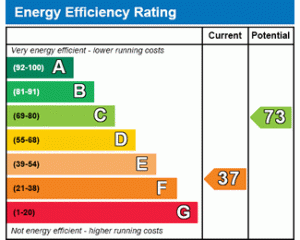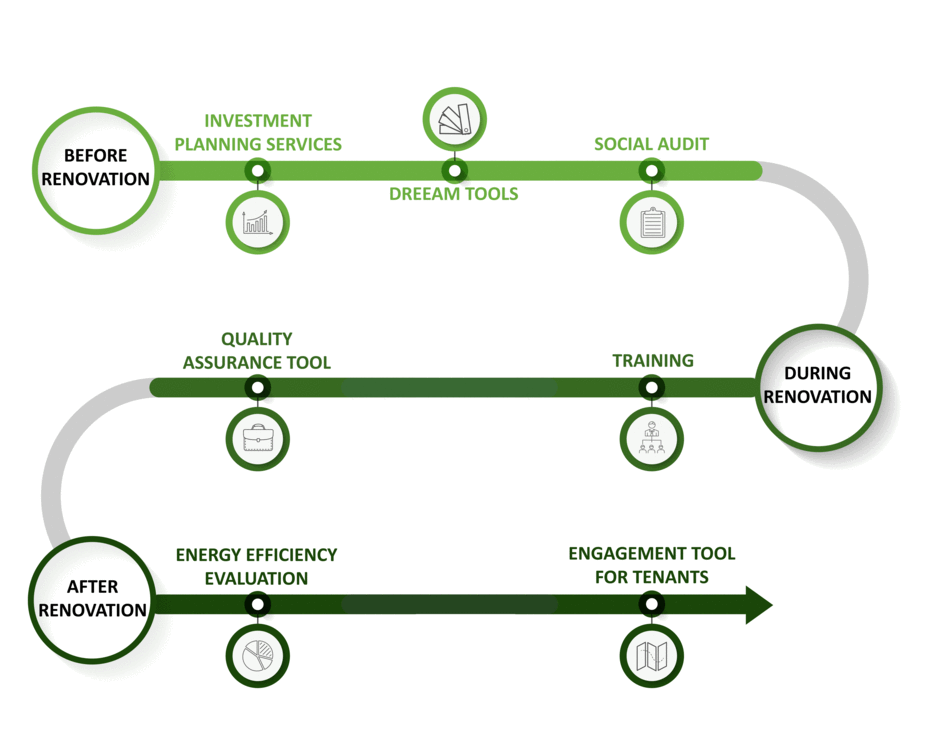
Strategy definition and investment planning represent the first step of a building owner’s decision-making process for large-scale multi-building renovation.
BAX & COMPANY’S INVESTMENT PLANNING SERVICE
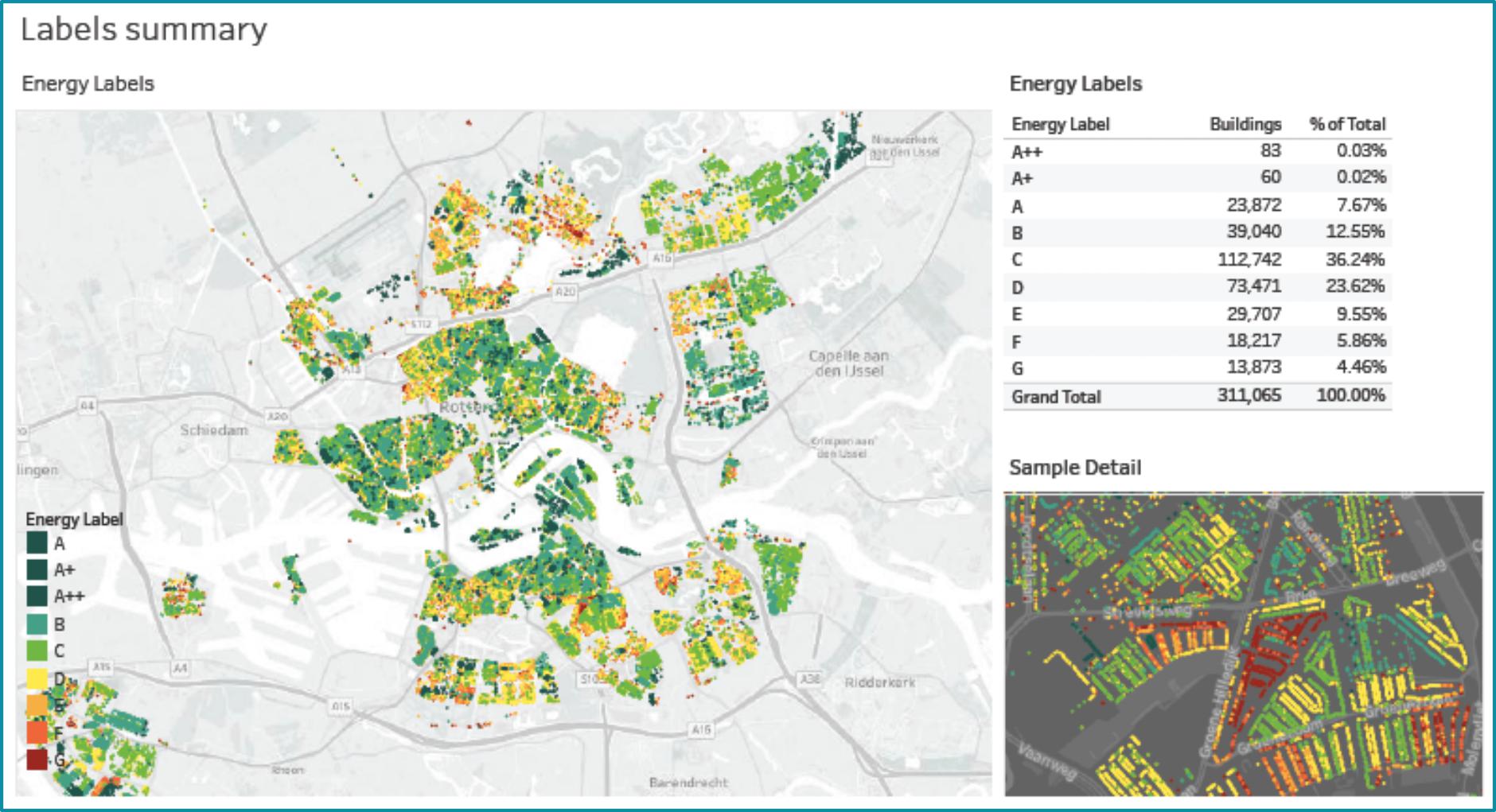
BUILDING STOCK ASSESSMENT
The current status of the BO’s building portfolio is assessed based on a crosscutting dataset of technical, operational and financial data points at dwelling-level. Properties are categorised by archetype and construction period as well as for their energy performance. The portfolio analysis is visualised for easier interpretation through map and graphs that allow identifying and prioritising opportunities.
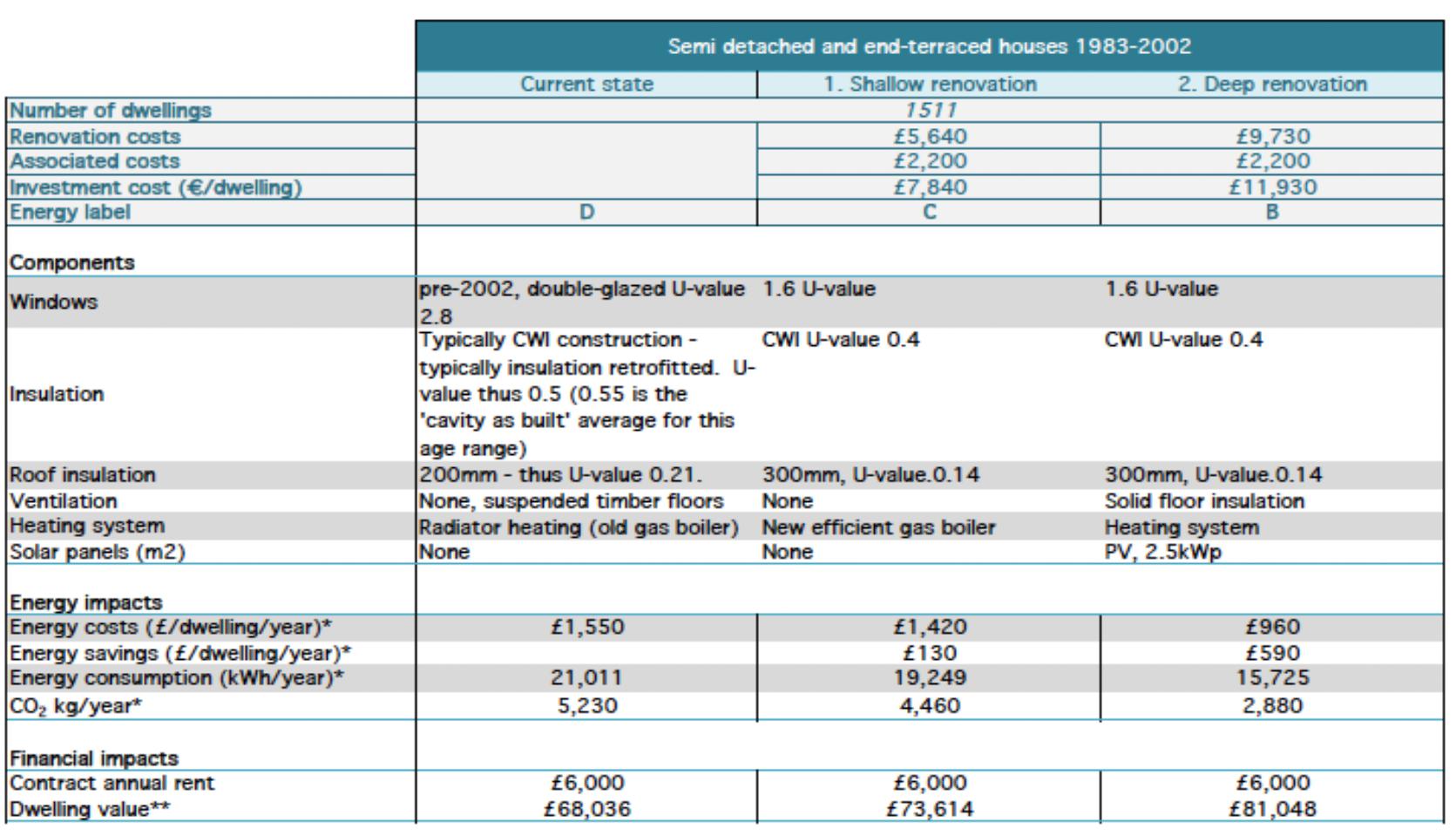
RENOVATION OPTIONS
For each target group consisting of buildings from the same archetype, construction period and energy performance, standard renovation packages are designed to link investments with potential energy savings. Renovation packages are built as a combination of measures leading to a certain improvement in energy performance, reflected in better EPC and energy/CO2 savings.

INVESTMENT PATHWAYS
Applying a “backcasting” approach, energy efficiency targets are considered the starting point for the development of investment strategies which realistically link the building owners’ financial capacity with the renovation measures to be implemented. Through this step target scale renovation opportunities are identified and economic/environmental impacts of different strategies assessed.
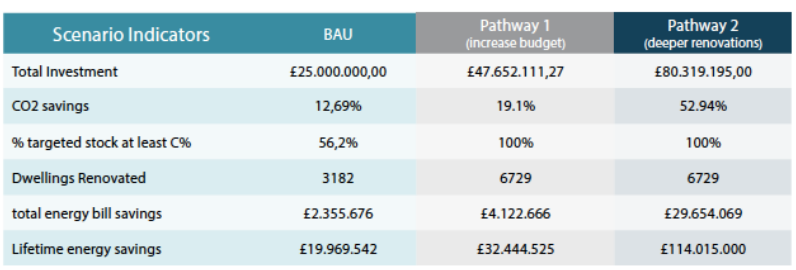
FINANCING
Scaled renovation programmes, where sustainability and long-term ambitions are integrated into housing provider strategies can unlock lower-cost financing. BaxCo finally assesses different financing opportunities and link BO’s portfolio renovation strategies with relevant low-cost financing programmes.
THE VALUE OF INVESTMENT PLANNING
The investment planning services supports board-level decision-making about EE portfolio investments, thus demonstrating the value of multi-building renovation.

